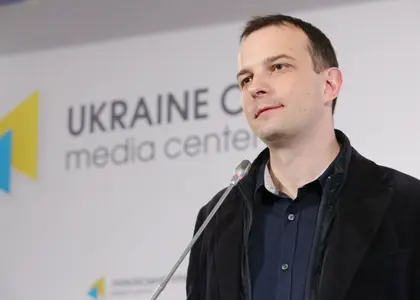“The topic of Volya is closed,” former Volya party member Yegor Sobolev told the Kyiv Post after announcing that he and others were leaving the party on Nov. 9. “I need to work on forming a coalition and organizing monitoring of lustration and not disputes with swindlers. I wish the party Volya the strength it needs to cleanse itself.”
Sobolev is a EuroMaidan activist and the party’s highest-profile member. He and other activists joined forces with experienced politicians such as incumbent Ivano-Frankivsk parliament member and businessman Yuriy Derevyanko.
JOIN US ON TELEGRAM
Follow our coverage of the war on the @Kyivpost_official.

Although many wondered about the strength of such a union of the idealistic camp of the party led by Sobolev and the old guard led by Derevyanko, the split in Volya’s ranks only became public when Derevyanko stated earlier this month that the party had decided to to create its own grouping to represent its interests in the Rada.
The announcement put many members of the party in a precarious situation. Volya did not put forward its own candidate list for the Oct. 26 parliamentary election. Instead many of its people piggy-backed other political forces because Volya did not believe it was capable of crossing the 5 percent threshold to enter the parliament. Those who ran on other party lists are committed to staying with party factions who made them lawmakers.
Most Volya candidates who chose to run on a party list ran under the Samopomich (self-reliance) banner, including Sobolev, though one also ran on the Narodny Front list. Samopomich, which was started by the popular Lviv Mayor Andriy Sadovy, ran on the image of brining fresh faces and activists to the parliament and was one of the breakout parties of the election, winning 11 percent of the votethrough the proportional system.
Following the election Derevyanko stated that it was imperative that Volya have its own grouping to defend its “principles, values and political promises.”
Although Derevyanko said there was no conflict with Samopomich, many interpreted his statement as the final stage of the split between the idealistic camp in the party that rose on the wave of EuroMaidan, and the old guard who use parties as tools for promoting their interests.
“It is a conflict within Volya. There were the civic activists like Sobolev who wanted to create a new structure and people like Derevyanko who wanted to use that structure for their own personal purposes,” said Oleksiy Haran, professor of political science at the Kyiv-Mohyla Academy.
For years, Derevyanko has been subject to accusations by the Ukrainian media of connections to unsavory business practices and businesses, including EDAPS, a private company that for years monopolized procurement tenders for certain types of counterfeit-proof documents, such as passports and excise stamps.
Derevyanko denied the accusations at a press conference held on Nov. 7 stating that such stories were “pure manipulation of information.”
But in a recent public Facebook post Sobolev said he had been misguided about Derevyanko and his business activities, and even apologized for asking people to join the party.
He explained that Derevyanko had originally been introduced to him and others as someone who had supported the EuroMaidan protests and reform. Sobolev pledged to grow from the experience and “become a real man” in “this profession of wolves.”
Photo by Olexander Lepetuha / DYVYS
You can also highlight the text and press Ctrl + Enter




